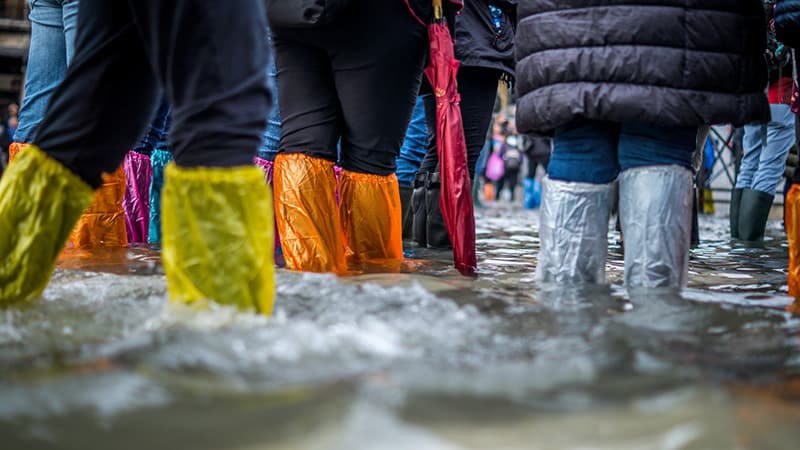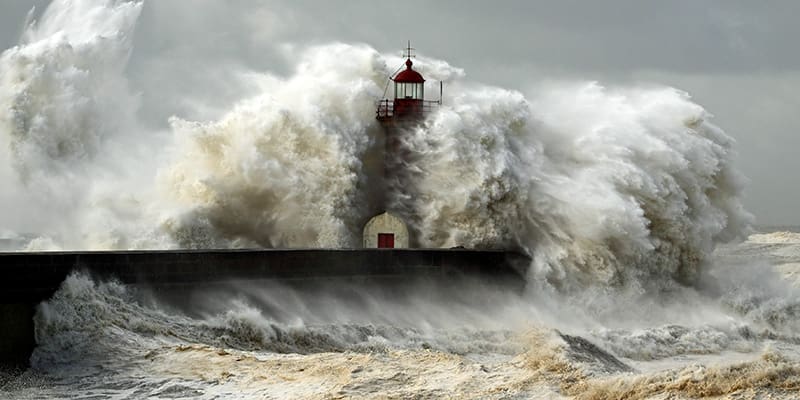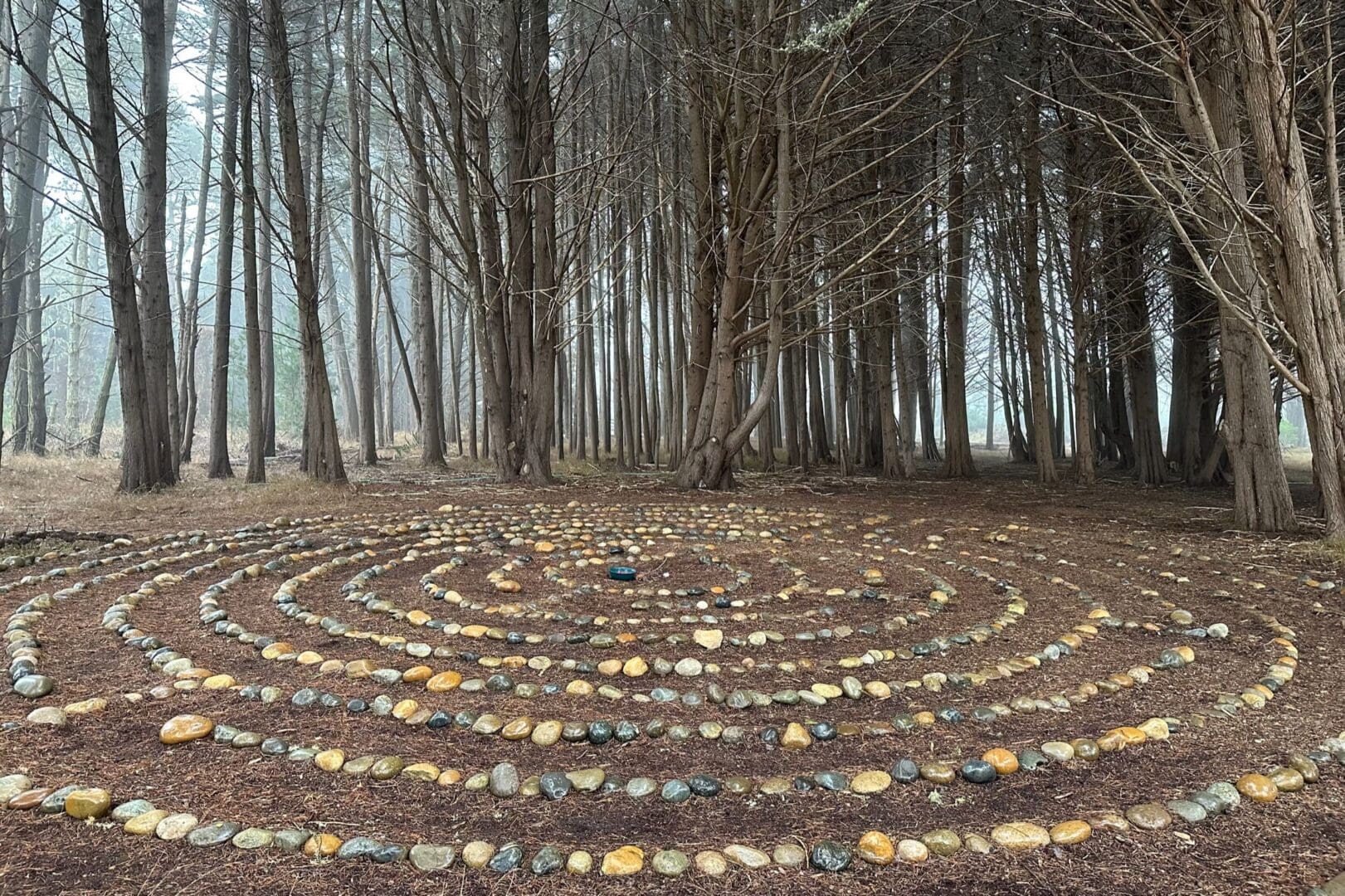Awareness of the global polycrisis is spreading everywhere now. Most often people tie the polycrisis to climate change. Fewer realize that the real challenge is the unpredictable interaction of all the global stressors—environmental, social, technological, and financial/economic.
Climate, COVID, and conflicts without end are the three emblematic issues for the polycrisis. But the emblematic issues keep morphing. The Ukraine war was for months in the headlines—now it has faded in the news (though it continues in reality). COVID, once a constant headline, has now moved into the background and monkeypox takes its star turn, though COVID remains a far greater danger.
****
Once people succeed in wrapping their minds around the reality of the polycrisis, they usually want to know what they can do. And they also search for a shared narrative about what is happening.
Sadly, no shared narrative will emerge. The polycrisis looks so different to different people in different places. It just isn’t the same in Moscow, Beijing, Nairobi, Kabul, Tehran, Sydney, Madrid, and rural Tajikistan.
We won’t reach a consensus on what to do, either. Some believe the answer is spiritual, some technological, some an achievement of Sustainable Development Goals, some global peace, and some continental networks of bioregional economies. There are countless other strategies.
****
Many people believe that we are at a transformational point. Some believe civilization will collapse. Others speak of the great unraveling, the great simplification, the end of the world as we know it, eco-social collapse, or, in the eloquent French term, “collapsologie.”
There’s a continuum of scenarios. The “techno-optimists” see technology riding to the rescue. Others view humans as a transitional species and anticipate that successor species—perhaps technologically enhanced—will emerge. Some imagine an ecotopia of some kind. Others that we might all live frugally at an income level comparable to Costa Rica.
The hard fact appears to be that we are in a bottleneck of evolution, the Anthropocene, the 6th Great Extinction. Only a portion of the biome will make it through. We have little sense of what will emerge on the other side.
So while there are optimists of various shades, the views of most people around the world is that we face a difficult future.
An August 2022 Pew global survey captures some of this:
“When asked how children in their country will fare financially when they grow up, a median of 70% of adults across 19 countries say they will be worse off than their parents, according to a Pew Research Center survey conducted this spring.
At least three-quarters of adults in Japan, France, Italy and Canada say children will be worse off financially than their parents, as do majorities in Spain, the United Kingdom, Australia, the United States, Belgium, Greece, the Netherlands and South Korea. Singapore is the lone country surveyed where a majority of adults (56%) believe the next generation will be better off financially.”
****
The strain on mental health is a major issue. In the United States alone, Forbes reports:
With approximately one million American lives lost to COVID-19, the impact of the pandemic has been significant, often heartbreaking.
New data released today show just how significant the mental health impact of the pandemic has been—and for whom.
According to a new report from the COVID States Project, nearly half (49%) of respondents reported symptoms of depression, with 26% reporting moderate symptoms or worse, the level at which follow-up care would typically be recommended in a clinical setting.
This latest survey—conducted between March 2 and April 4, 2022, with more than 22,000 people across all 50 states and Washington, D.C.—is part of a series of nationwide surveys about the public’s attitudes and behavior relating to COVID-19.
****
This is where we find ourselves. We are living in the polycrisis. Many around the world have been living in it for a very long time. We can’t avoid the polycrisis. The real question is how to live as best we can—doing what we can to soften its blows and to turn the polycrisis toward better outcomes as we can.
One thing that helps most people cope is simply to do something. It may not matter so much what we do, as long as it feels like an enactment of our personal commitment to personal or family or community survival—or to fighting for a better world.
The idea is that it helps us to do something—whatever we are called to—the thing that speaks to our hearts and minds as the best we can personally do.
Our work at Commonweal is based on this principle. We try to do good things. We welcome people from many walks of life who want to do good things.
We don’t all have to agree on why we do good things together. We may have very different views about what is happening, why it is happening, who is to blame, and what we should do to change it. But we may come together in a vision of a world where people and critters thrive together. A stepping stone toward that world is to do things we can agree are good regardless of our differences.
That’s why at Commonweal we offer the Cancer Help Program, Healing Circles, Cancer Choices, the Power of Hope Summer Camps, The New School, and literally dozens of other places where people of all political and cultural views can come together and do things, learn things, share things that make their lives better—at least in this moment. And now is all we ever really have.
That’s why I think of Commonweal, at its best, as transpolitical—as addressing those things that are shared by as many human beings as possible. James Taylor said it so beautifully in Shed a Little Light:
Let us turn our thoughts today to Martin Luther King
and recognize that there are ties between us,
all men and women living on the Earth.
Ties of hope and love, sister and brotherhood,
that we are bound together
in our desire to see the world become
a place in which our children can grow free and strong.
We are bound together by the task that stands before us
and the road that lies ahead.
We are bound and we are bound.
There is a feeling like the clenching of a fist
There is a hunger in the center of the chest
There is a passage through the darkness and the mist
And though the body sleeps the heart will never rest
Shed a little light, oh Lord, so that we can see, just a little light, oh Lord.
Wanna stand it on up, stand it on up, oh Lord
wanna walk it on down, shed a little light, oh Lord.
Can’t get no light from the dollar bill, don’t give me no light from a TV screen.
When I open my eyes I wanna drink my fill from the well on the hill,
do you know what I mean?
(Here JT is with the Low Country Voices singing in memory of the victims of the Charleston shooting and their families.
****
Personally, I hold with no creed that excludes anyone because of the color of their skin, who they love, or what they believe. No matter they may be sworn enemies of what I believe. I won’t exclude them from my prayers and compassion.
I hold with the vision the founding Quaker, George Fox, received when he climbed Pendle Hill and saw “that of God in every man.” That vision loosed upon the earth a Society of Friends who would bow to no man, who prized frugality, who dressed simply, who worshipped in silent circles, who spoke their truth quietly into the middle of the room.
That vision, that quiet, peaceful vision, helped end slavery, reform prisons, create conscientious objectors to war, and led Quakers to be in the forefront of human rights, environmental rights, peace work, justice work, and more ever since.
I imagine a global Community of Friends spanning all religions, faiths, and beliefs, secular, scientific, religious, spiritual, philosophical and what have you.
My vision is a vision like James Taylor’s, focused on what all men and women around the world have in common, and what binds us together: the desire to see the world become a place where our children can grow free and strong.
We can disagree about one hundred thousand different things. But let us recognize that all over the world there are men and women working every day to make the lives of their families and communities better. That these are people of integrity, people aware of their strengths and their flaws, simply doing their best to be decent human beings and make the best of what they have.
This awareness of what James Taylor, George Fox, and the Buddha all said is fundamental to what I believe with all my heart. We’re bound together, all men and women, living on this earth. I know from direct experience that if I keep that in mind I feel an instinctive compassion for all.
Commonweal literally means the well-being of the whole community. With George Fox, I exclude no one from our compassion. With the Buddha, I believe that even the most darkened soul is on the long twisting path to the light.
It is vital to me to exclude no one because I am so aware of my own flaws. As Thich Nhat Hanh says, how easily under other circumstances I could have been one of the pirates off the coast of Vietnam, boarding ships, killing the men, raping the women, throwing the children overboard.
We all contain within us, I believe, so much capacity for good and harm. How can we be other than compassionate for those lost in some faith that causes so much harm to others? How can we denounce all the billions of people caught in a global capitalist system that is literally destroying the earth?
When I was a child, there was a cartoon called “Pogo” about a possum and his animal friends. Once, Pogo unforgettably said, “we have met the enemy, and they are us.”
So, my friends, as we face the great darkness ahead, the great unravelling, the end of the world as we know it, the great turning, the great simplification, and all the other names by which the global polycrisis is called—we don’t know and can’t know the one big thing that will solve it all. But we do know the ten thousand little things that we can do each day to make our worlds a little better.
Of course I hope with all my heart that some wise and skillful combination of environmental, social, technological, and financial/economic measures will slow the polycrisis and move us toward the best possible future. We can hope for that, fight for it, work for it.
But the fact remains we will have to live in it, with it, and through it no matter whether we succeed in ameliorating it or not.
Even if dark clouds are gathering, and they are, we can be—and we can be remembered as—people who tried to be kind whenever we could be, people who tried to be compassionate, people who tried, each in our way, to make things a little better for those whose lives we touch.
It’s simple, really. Just, today, be kind. Just, today, look at what we can do to make things a little better. Just, today, seek to remember that of God—or that of the divine, or the truly human—within each of us. Including ourselves. And remember to be compassionate to our own selves, flawed though we know ourselves to be.
Maybe that’s what it’s all about. The Golden Rule. Do unto others as you would have them do unto you. It’s actually a hard thing to do. But we can all work on it.
Love and prayers,
Michael




